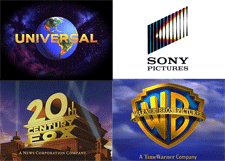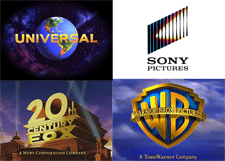

Pierce O'Toole graduated from Emerson College with a degree in Film Production, but has been an AV enthusiast all his life. He was brought into the hobby by his father, who spent time working for Wilson Audio and Transparent Audio, introducing Pierce to the high end of what was possible with consumer electronics and gear.
Pierce formerly served as Content Coordinator for HomeTheaterReview.com and its sister site AudiophileReview.com.
 In the last few days, DirecTV has faced serious scrutiny for entering into an agreement with Fox, Sony, Warner Bros, and Universal that would allow them to offer "premium Video on Demand" movie titles 60 days after release. What that means is that 60 days after a movie is released in theaters, DirecTV customers will have the opportunity to rent these titles for the price of $30 per rental with a three day window to watch the title. This would seem like a pretty good option if there weren't so many problems with it.
In the last few days, DirecTV has faced serious scrutiny for entering into an agreement with Fox, Sony, Warner Bros, and Universal that would allow them to offer "premium Video on Demand" movie titles 60 days after release. What that means is that 60 days after a movie is released in theaters, DirecTV customers will have the opportunity to rent these titles for the price of $30 per rental with a three day window to watch the title. This would seem like a pretty good option if there weren't so many problems with it.
Additional Resources
• Read more original content like this in our Feature News section.
• See more movie news from HomeTheaterReview.com.
• Learn about movie studios asking consumers what Blu-rays to release.
The first problem is that the movie theater chains are not happy at all with this development, even given that this current model doesn't affect their business that greatly. Arguably 50 percent of box office revenue is made in the opening weekend, with attendance drop off causing theaters to remove films from their theaters long before the 60 day mark. So what exactly is the problem here? Move theater chains are worried about the precedent this sets. If they let this slide, what is to keep the studios from pushing up to the 30 day mark or even up to the same day of theatrical release? It is not a wholly ungrounded fear as there are films that have been released theatrically and on Video-on-Demand services simultaneously. However, these have always been lower budget films, the kind of films that can't justify wide release on 3,000 screens. In other words, films that don't threaten the business of theater chains.
This argument has climaxed to a point where theater chains are beginning to threaten boycotting films released by Fox, Sony, Warner Bros, and Universal, specifically Harry Potter and the Deathly Hallows Part 2, which is most likely going to be the biggest commercial success of 2011. It is for that very reason that this feels like an empty threat. However, boycotting is not the only way the theaters can challenge this.
A major problem is that this new service is not supported by all the movie studios. Disney and Paramount have decided not to get involved with DirecTV. This allows for the possibility of favoritism. For instance, if Universal and Paramount have movies opening on the same day, theater owners can promote the Paramount film more heavily and carry it on more screens to make a statement against the VOD service. This seems like a more likely route than actual boycotting. While the existence of the service has created a lot of potential problems, the service itself has plenty of its own.
Read about the other problems on Page 2.
First of all, these "premium VOD" titles are only available to DirecTV customers. DISH Network, Comcast, and Time Warner
won't be receiving the service. If you are going to go ahead and piss
off theater chains, maybe you should do it in a way where you reach as
many customers as possible instead of a select few. That might help
with the risk versus reward factor. But even if all television
providers had the service, it still may not be that enticing.
The titles become available 60 days after a movie is released in theaters with a price tag of $30. Most movies are released on DVD and Blu-ray
120 days after release. Now if you were able to wait two months to rent
a movie, wouldn't you wait another two months to be able to own it for
the same price if not less? Especially given the fact that when you buy
the movie on Blu-ray it will have superior picture and sound quality.
In fact, if you wait just a little past the Blu-ray release date you
can rent the movie from VUDU or CinemaNow or Netflix for next to nothing. In short, not a very well thought out price point for this service.
It's hard to see where the market is for this service. It doesn't give you the incredible access of the Bel-Air Circuit, nor the dollar to play value of a Blu-ray. It would seem that the studios are specifically targeting the home theater enthusiast market with this service. However, there is one last, and very big, problem with that: home theater enthusiasts
demand more quality than this service offers. Until a service of better
quality comes along, wait the two months and get the Blu-ray.